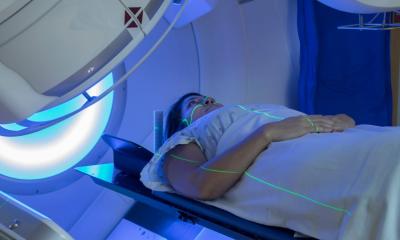Mortality
Death risk rises over weekends
New studies reveal the heightened risk of death that patients face if admitted to hospital over a weekend. Researchers have studied what effect the day of hospital admission has on death rates across England in 2013-2014, as well as on hospitals in other countries, such as Australia, the USA and The Netherlands.
Report: Mark Nicholls

Professor Paul Aylin and team at Imperial College London found that the heightened risk of death after weekend hospital admission – the so-called ‘weekend effect’– is a feature of several developed countries’ healthcare systems, i.e. not just a problem in England.
Drawing on international data from the Global Comparators project - a database to which more than 50 hospitals in the UK, USA, Australia, The Netherlands, Italy, Spain, Belgium, Finland, Norway and Denmark contribute – the researchers looked at data on almost three million admissions between 2009 and 2012 from 28 metropolitan teaching hospitals. They focused on deaths occurring in hospital within 30 days of an emergency admission or elective surgery and found that, after taking account of influential factors, the risk of dying within 30 days for emergency admissions at weekends was 8% higher in 11 hospitals in England, 13% higher in five of the US hospitals, and 20% higher in six Dutch hospitals, though there was no significant daily variation in the heightened risk of death in Australia.
‘Although these results are limited to the small number of participating hospitals, the international nature of our database suggest that this is a systematic phenomenon affecting healthcare providers across borders,’ the researchers conclude. ‘Further investigation is needed to understand the factors that give rise to the weekend effect.’
Focusing on the UK – examining data for 2013-2014 – the team said their findings suggest a generalised ‘weekend effect’ which can be partly explained by the reduced support services from late Friday through the weekend, leading to disruption on Monday morning. The analysis, carried out by University Hospital Birmingham NHS Foundation Trusts and University College London, stressed the need to ‘determine exactly which services need to be improved at the weekend to tackle the increased risk of mortality’.
In the UK an average of 2.7 million patients were admitted to hospital on each weekday, while an average of 1.2 million were admitted on a Saturday and one million on a Sunday. Saturday and Sunday admissions were more likely to be emergencies, 50% and 65% respectively, than on weekdays (29%) and length of stay was also higher for patients admitted at the weekend.
Patients admitted to hospital at the weekend were more likely to be sicker and have a higher risk of death, compared to those admitted during the week. Researchers discovered that around 11,000 more people die each year within 30 days of admission to UK hospitals on Friday, Saturday, Sunday, or Monday compared with other days of the week. The findings from both studies – published in The British Medical Journal - come amid proposals for seven-day working week within the NHS and follow health secretary Jeremy Hunt’s recent call for hospital doctors to work at weekends to improve quality of care and reduce deaths.
Professor Aylin suggests more research is needed to determine the ‘complex’ relationship between staffing levels and services, and patient safety and that changes to how the NHS provides weekend and out of hours care ‘will be an ideal opportunity to evaluate their impact on the weekend effect’. The UK government has confirmed that plans for seven-day services will focus on the delivery of urgent and emergency care, rather than seven-day elective care.
Dr Mark Porter, the BMA (British Medical Association) council chair, said: ‘The BMA agrees that seven-day urgent and emergency care should be the priority for investment. This will ensure the sickest patients have access to excellent care, around the clock. The focus should be on bringing this up to the same high standard across the week before looking at whether the NHS can afford to expand routine, elective care. ‘More detail is now needed on how seven-day services will be provided at a time when existing staff and services are under enormous pressure, including how additional weekend care can be delivered without weekday services being affected.’
PROFILE:
Mark Porter MD is the elected BMA council chair and a consultant anaesthetist at the University Hospitals Coventry and Warwickshire (UHCW) NHS Trust. His special interest is in obstetric anaesthesia and the continual development of maternity services to improve mothers’ experience. Previous roles in the BMA have included chairmanship of the consultants committee (2009-2012) and its deputy chair responsible for pay and conditions of service (2006-2009)
24.11.2015





